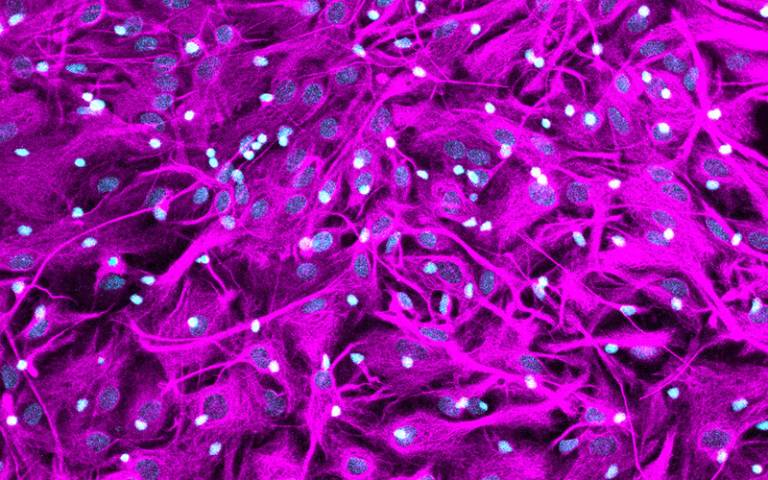Researchers have identified a key cellular process that helps the brain maintain its energy supply, potentially opening new avenues for treating cognitive decline and neurodegenerative diseases. The study, published in Nature, reveals how star-shaped brain cells called astrocytes detect and respond to the energy needs of nearby neurons.
Led by scientists at University College London (UCL), the research used mice and cell samples to uncover a signaling pathway involving the molecule adenosine. This pathway allows astrocytes to monitor neuronal activity and quickly ramp up energy production when needed.
Astrocytes: The Brain’s Energy Managers
Astrocytes play a crucial role in supplying energy to neurons. When brain activity increases, these cells activate their glucose stores and metabolism, producing and releasing lactate as an additional energy source for neurons.
Professor Alexander Gourine of UCL Neuroscience, Physiology & Pharmacology explained: “When our brain is more active, such as when we’re performing a mentally taxing task, our brain needs an immediate boost of energy, but the exact mechanisms that ensure on-demand local supply of metabolic energy to active brain regions are not fully understood.”
The researchers identified specific receptors on astrocytes that detect neuronal activity and trigger the adenosine signaling pathway. This pathway is similar to the one that mobilizes energy stores in muscles and the liver during exercise.
Implications for Brain Health and Longevity
When the team deactivated these key astrocyte receptors in mice, they observed significant impairments in brain metabolism, memory, and sleep patterns. This demonstrates the vital importance of this energy-boosting mechanism for critical brain functions.
Dr. Shefeeq Theparambil, the study’s first author, highlighted the potential broader implications: “Identification of this mechanism may have broader implications as it could be a way of treating brain diseases where brain energetics are downregulated, such as neurodegeneration and dementia.”
Professor Gourine added: “We know that brain energy homeostasis is progressively impaired in ageing and this process is accelerated during the development of neurodegenerative diseases such as Alzheimer’s disease. Our study identifies an attractive readily druggable target and therapeutic opportunity for brain energy rescue for the purpose of protecting brain function, maintaining cognitive health, and promoting brain longevity.”
This discovery could lead to new therapies aimed at maintaining brain health and cognitive function as we age. By targeting the adenosine signaling pathway in astrocytes, researchers may be able to develop treatments that boost the brain’s energy supply and potentially slow or prevent cognitive decline.
The study, supported by Wellcome, involved collaboration between scientists from multiple institutions including UCL, Lancaster University, Imperial College London, King’s College London, Queen Mary University of London, University of Bristol, University of Warwick, and University of Colorado.
As our understanding of brain energy metabolism continues to grow, this research provides a promising new direction for combating age-related cognitive decline and neurodegenerative diseases. The next steps will likely involve further exploration of how this mechanism can be therapeutically targeted to promote long-term brain health.


